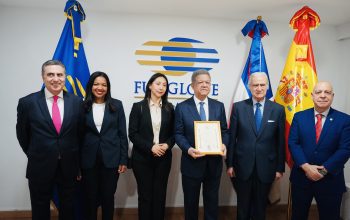news
Leonel Fernández Addresses Research Congress on Innovation
July 6, 2015
As part of his presentation, Dr. Fernández urged the country’s universities to intensify their efforts to produce innovative knowledge.
La Vega – President of the Global Foundation for Democracy and Development (GFDD) and Fundación Global Democracia y Desarrollo (Funglode), Dr. Leonel Fernández, was the keynote speaker at the closing of the First National Congress on Research, Innovation, Science, and Technology, organized by the
Catholic Tech University of Cibao (UCATECI).
 In his speech, Dr. Fernández urged the country”s universities to intensify their efforts to produce innovative knowledge that can be registered as patents, thereby gradually closing the technology gap the country is experiencing as compared to others around the world.
In his speech, Dr. Fernández urged the country”s universities to intensify their efforts to produce innovative knowledge that can be registered as patents, thereby gradually closing the technology gap the country is experiencing as compared to others around the world.
Former President Fernández was referring to the Global Innovation Index where the Dominican Republic is rated number 83 out of 143 countries. Hence, it is urgent that the business community and universities increase their interest in technology to enable the country to become more competitive.
“We have to create goods and services with higher value added. If we don’t, Latin America will always be poor.
In terms of
innovation, said Fernández, Latin America and the Caribbean are below other regions of the world with the exception of South Africa, which he considers to be of great concern for the immediate future.
“We have to create goods and services with higher value added. If we don’t, Latin America will always be poor.”
In his lecture on Research, Innovation, Science, and Technology, Dr. Fernández summarized the progress in innovation that human beings have
experienced since the Metal Age up to the first industrial revolution, and through the invention of the wheel, the plow, sailboat and other instruments for development.
He also highlighted the achievements of the last one hundred years, especially those that came after World War One.
Fernández stressed that the economic and social impact, in addition to exponential growth in science, technology, and innovation over the last hundred years, has been greater than
anything experienced by mankind in the previous five thousand years.
Elaborating on this, Dr. Fernández said lately, as more knowledge has been transferred to society, this has meant a transition from analog to the digital revolution, and an explosion of information technology and communication. Many developments have been made, such as the Internet, big data and analytics, implementation of artificial intelligence, robotics, genetic engineering, nanotechnology,
neuroscience, biotechnology, 3-D printers, drones, the hydrogen economy, and many other innovations.
The conference began on Wednesday last week and ended on Saturday with former President Fernández’s keynote speech.
 The event was organized with the aim of creating a space where producers of technologies,
The event was organized with the aim of creating a space where producers of technologies,
research, and science could meet with students and the labor sector to recognize and publicize advances in both branches of knowledge as well as future projections.
Following his speech, Dr. Fernández received a plaque from UCATECI in recognition of his contributions to education in the Dominican Republic. UCATECI authorities, headed by University Rector, Father Julio Martin Castillo, gave the distinction to former President Fernández.
The local town
council of La Vega declared former President Fernández an honored visitor by means of a resolution from the Chapter House. The recognition was bestowed upon Dr. Fernández by a commission headed by La Vega Mayor, Alexis Pérez.






